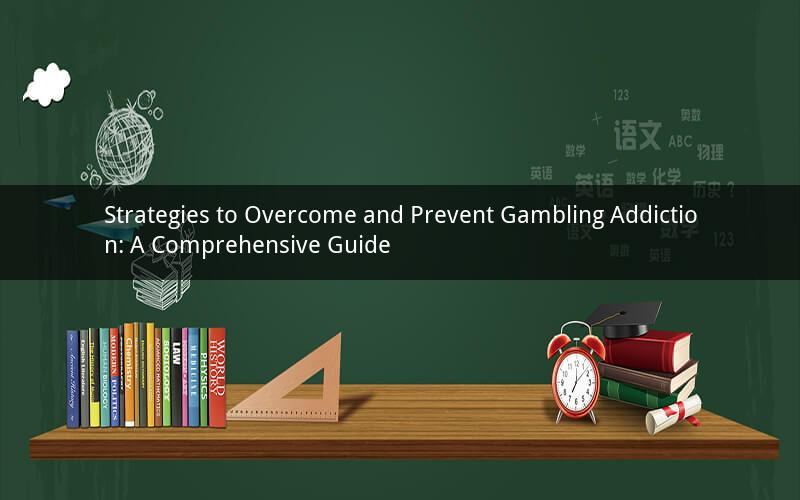
Introduction:
Gambling addiction is a serious issue that affects millions of individuals worldwide. It can lead to financial, emotional, and social problems. This guide will explore various strategies to help individuals avoid gambling addiction and maintain a healthy lifestyle.
1. Understanding the Risks of Gambling Addiction
Gambling addiction is characterized by an inability to control gambling behavior, despite negative consequences. It is crucial to recognize the signs of addiction to take appropriate action. Common signs include:
- Preoccupation with gambling thoughts
- Needing to bet more money to achieve the same thrill
- Feeling restless or irritable when attempting to stop gambling
- Returning to gambling to relieve negative emotions
2. Building a Strong Support System
Surrounding yourself with supportive individuals can significantly reduce the risk of developing a gambling addiction. Here are some ways to build a strong support system:
- Seek support from family and friends: Communicate openly about your concerns and ask for their understanding and support.
- Join a support group: Organizations like Gamblers Anonymous provide a platform for individuals to share their experiences and gain strength from others.
- Consider professional help: Therapists specializing in addiction can provide personalized guidance and support.
3. Developing Healthy Coping Mechanisms
Gambling addiction often stems from underlying emotional or psychological issues. Finding healthier ways to cope with stress and negative emotions is essential. Here are some coping mechanisms to consider:
- Exercise: Physical activity can improve mood and reduce stress levels.
- Practice mindfulness: Mindfulness techniques, such as meditation or deep breathing exercises, can help individuals stay grounded and focused.
- Engage in hobbies: Distracting yourself with hobbies or interests can divert attention from gambling thoughts.
4. Setting Clear Boundaries and Limits
Establishing clear boundaries and limits is crucial in preventing gambling addiction. Here are some tips:
- Set a budget: Decide on a specific amount of money you can afford to lose and stick to it.
- Limit the time spent gambling: Set a time limit for gambling sessions and stick to it.
- Avoid high-risk situations: Stay away from casinos, online gambling sites, or other environments that trigger gambling behavior.
5. Educating Yourself on Responsible Gambling
Knowledge is power when it comes to avoiding gambling addiction. Here are some resources to educate yourself on responsible gambling:
- Visit reputable websites: Websites like Gamblers Anonymous and GamCare provide valuable information and resources.
- Read books and articles: Look for books and articles written by experts in the field of addiction and gambling.
- Attend workshops or seminars: Many organizations offer workshops or seminars on responsible gambling.
6. Seeking Professional Help
If you or someone you know is struggling with gambling addiction, seeking professional help is crucial. Here are some options:
- Therapists: A therapist specializing in addiction can provide personalized treatment and support.
- Addiction counselors: Addiction counselors can help individuals develop strategies to overcome gambling addiction.
- Support groups: Joining a support group can provide a sense of community and support during the recovery process.
Frequently Asked Questions:
Q1: What are the signs of gambling addiction?
A1: Signs of gambling addiction include preoccupation with gambling thoughts, needing to bet more money to achieve the same thrill, feeling restless or irritable when attempting to stop gambling, and returning to gambling to relieve negative emotions.
Q2: How can I build a strong support system to help prevent gambling addiction?
A2: You can build a strong support system by seeking support from family and friends, joining a support group like Gamblers Anonymous, and considering professional help from therapists specializing in addiction.
Q3: What are some healthy coping mechanisms to avoid gambling addiction?
A3: Healthy coping mechanisms include exercise, practicing mindfulness techniques, and engaging in hobbies or interests to distract attention from gambling thoughts.
Q4: How can I set clear boundaries and limits to prevent gambling addiction?
A4: You can set clear boundaries and limits by deciding on a specific budget, limiting the time spent gambling, and avoiding high-risk situations that trigger gambling behavior.
Q5: What are some resources for educating myself on responsible gambling?
A5: Resources for educating yourself on responsible gambling include reputable websites like Gamblers Anonymous and GamCare, books and articles written by experts in the field, and workshops or seminars offered by organizations specializing in responsible gambling.